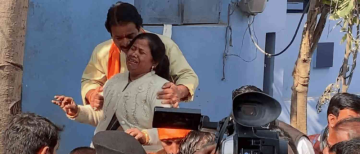People say that the weather in India is very unpredictable. Each year, heatwaves affect a lot of humans in India. As summer approaches, the effect on public health is more evident than ever. Over the last few years, heatwaves have gotten worse. People's actions are the primary cause of climate change.
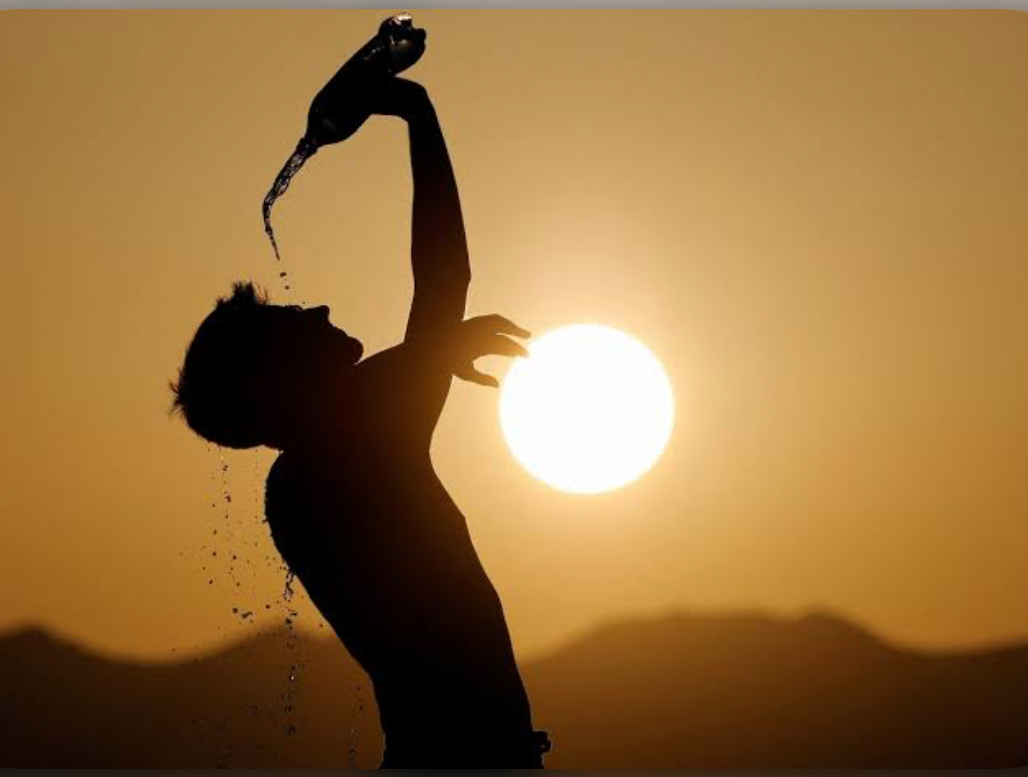
Figuring out what causes heatwaves
While temperatures are higher than usual for the area, a heatwave occurs when they last for a long time. This kind of weather usually hits India in May, but it can happen any time between March and June. Different places have different temperature levels that the Indian Meteorological Department (IMD) uses to talk about a heatwave. The IMD has seen a worrying trend: during the past few years, there have been more and more hot days.
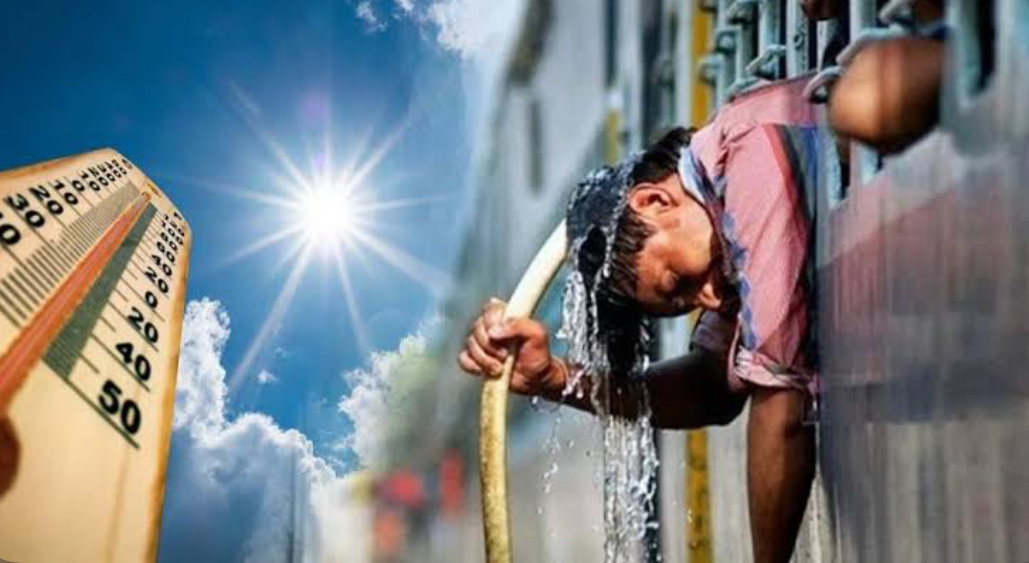
Human activities that change the climate system are the main cause of these heatwaves. When there is more carbon dioxide and other gases that trap heat in the atmosphere, the earth warms up. This rising trend causes heat waves to occur more frequently and with more force. There was no record-breaking cold weather anywhere in the world from 2014 to 2023. India broke records for the hottest period of weather ever.
Heatwave Impact: Health and Economic Consequences
As the temperature rises, people's health is at great risk, especially older people, kids, and people who already have health issues.
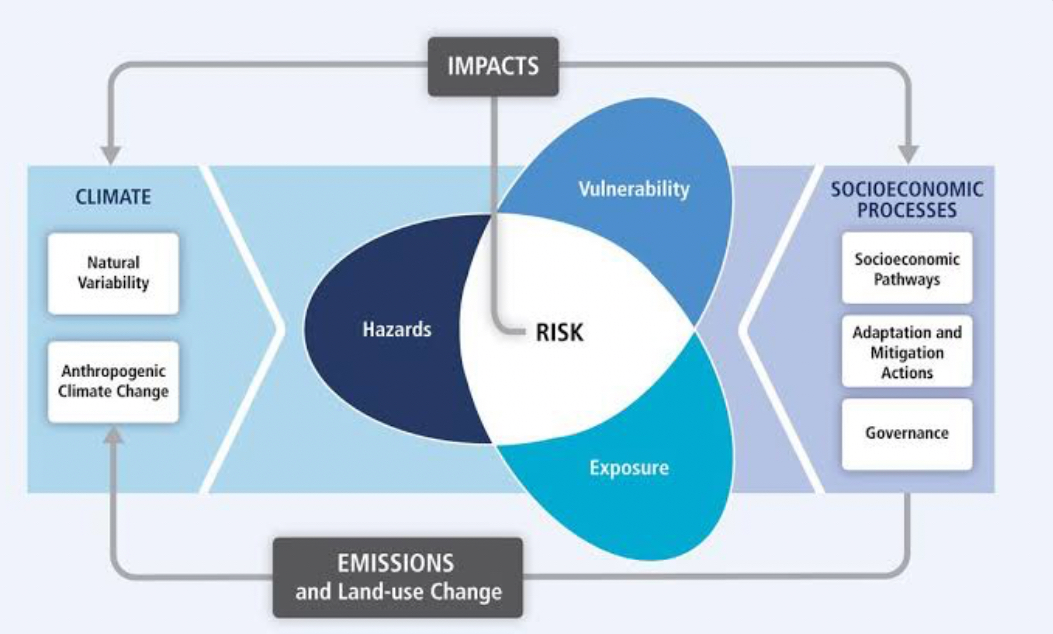
- Rising temperatures pose significant health risks, especially for older individuals, children, and those with pre-existing health issues.
- Heat stress and heatstroke can be fatal if not treated promptly.
- Heatwaves strain healthcare systems, causing a surge in hospital admissions for heat-related illnesses.
- Pre-existing health conditions face heightened risks during heatwaves, leading to complications and increased mortality rates.
- Heatwaves disproportionately affect vulnerable populations like the elderly, the homeless, and those without cooling facilities.
- Mental health impacts include increased stress, anxiety, irritability, and sleep disturbances.
- Economic consequences include reduced productivity, missed workdays, and increased healthcare expenditures.
Elections and heatwaves: Are you ready for both?
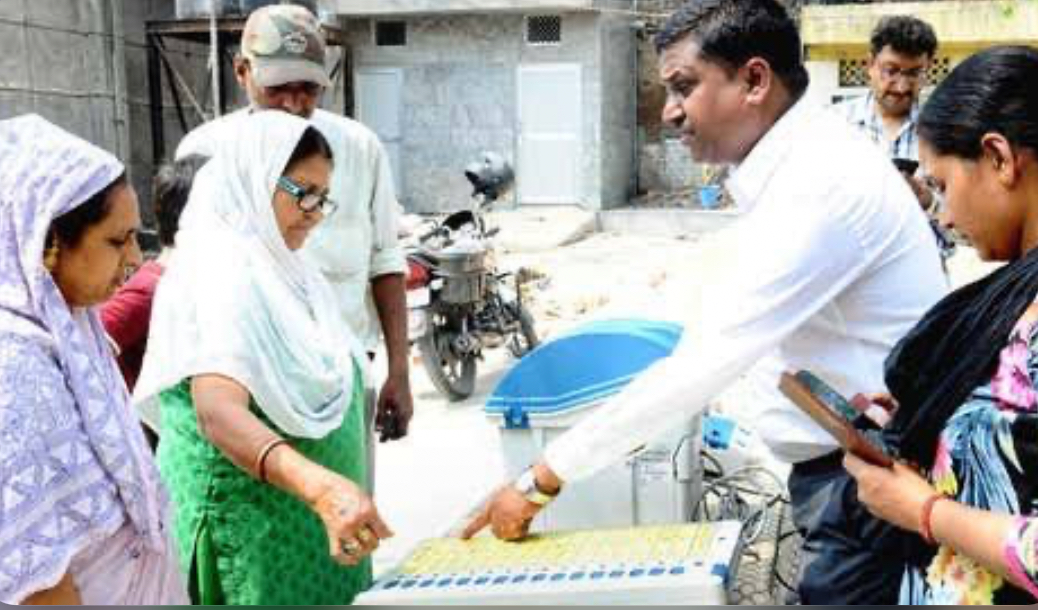
Other things that make things more complicated are heatwaves and elections happening at the same time. A lot of people complain about how hot it is inside India during the summer general elections. With the help of rules, India's Election Commission has made sure that heatwaves during voting don't pose too many health risks. You can keep voters and poll workers from getting sick from the heat by giving them shade, making sure they have water, and changing the voting hours.
Given the connection between elections and heatwaves, it's critical to develop comprehensive heatwave management strategies. Planned actions should include future weather reports, public health alerts, and changes to infrastructure in order to lower the chance of heat-related issues happening during major events like voting.
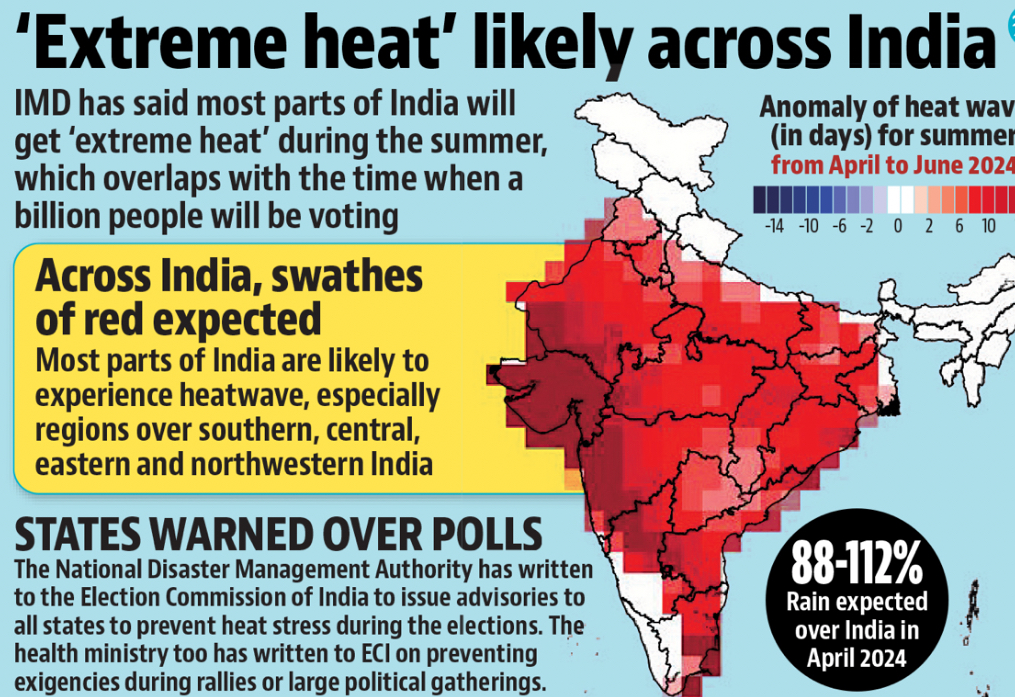
Expert thoughts and suggestions
It's very important to be alert during heatwaves, say people who work in public health, disaster management, and climate science. Having early warning systems, planning towns with green areas, and building infrastructure that can handle heat are all things that can help people stay healthy during heatwaves. Also, tell people that the safest way to stay cool during heatwaves is to drink water, find shade, and avoid doing hard things outside when it's really hot.
The Ministry of Health and Family Welfare's National Programme on Climate Change and Human Health (NPCCHH) is responsible for addressing health issues such as heatwaves caused by climate change. The NPCCHH strives to mitigate the health impacts of climate change in India through research, education, and the development of new regulations.
Heatwave Preparedness Measures
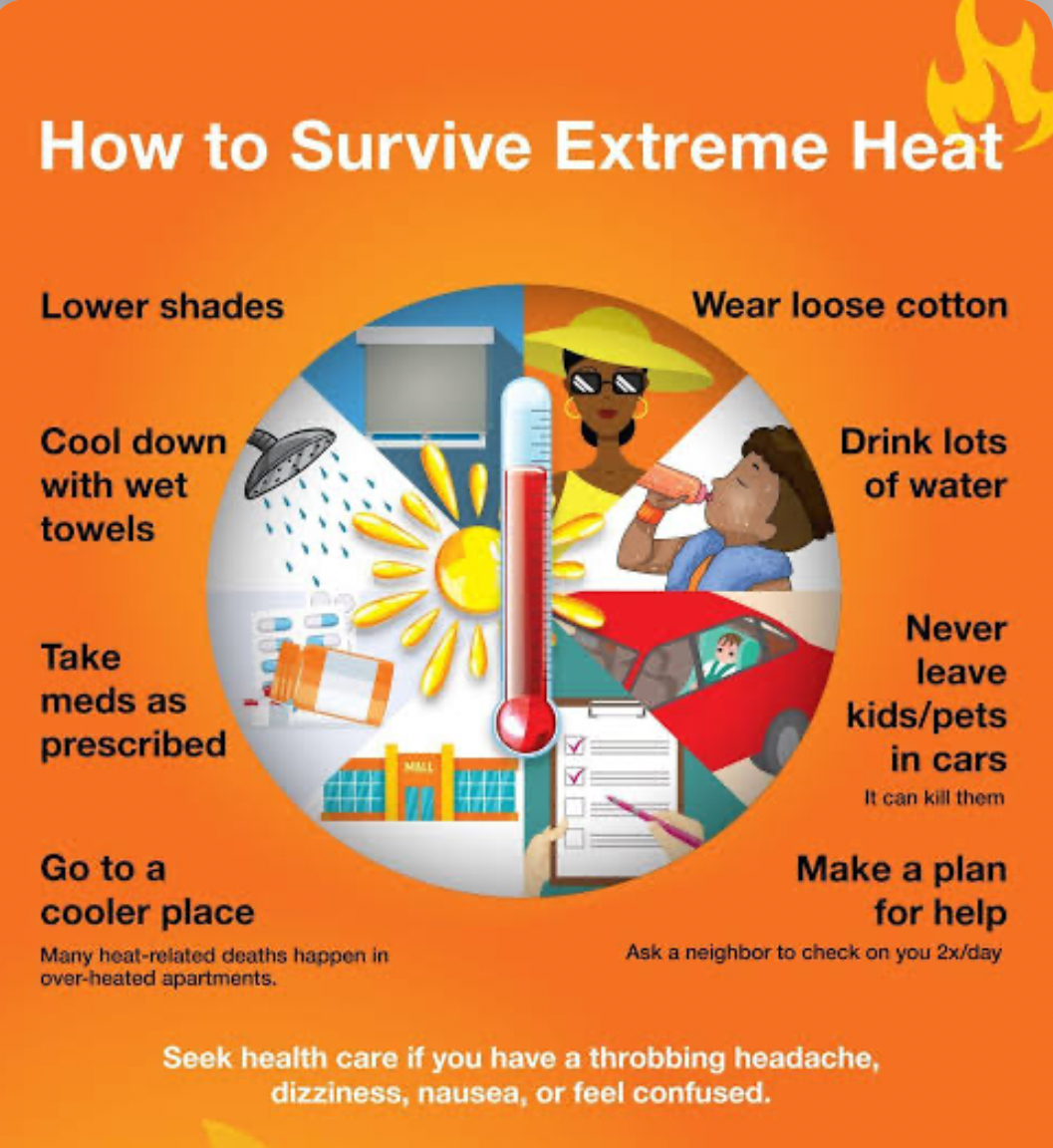
- Community Engagement: Encourage participation in heatwave action plans and drills.
- Healthcare Capacity: Strengthen facilities' heat-related illness management skills.
- Technology and Innovation: Explore heat-resistant materials, smart cooling systems, and real-time monitoring tools.
- Cross-Sector Collaboration: Engage multiple sectors in heatwave preparedness efforts.
Last Words
It's going to be very hot in India this summer, so they need to act quickly and collectively. We can reduce the harmful effects of high heat by eliminating heatwave-causing factors, constructing climate-resistant infrastructure, enhancing health crisis preparedness, and implementing targeted heatwave preparation measures. It's even more important to have thorough plans for dealing with heatwaves when they happen during important events like elections.
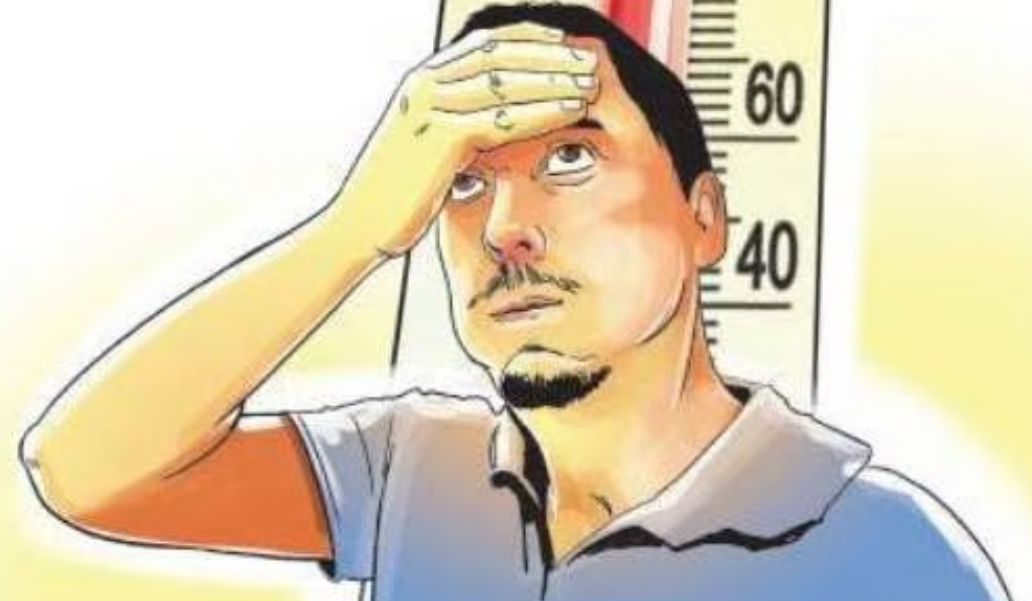
India can better deal with the problems caused by rising temperatures and ensure everyone has a safer, healthier future if they prioritise public health, climate resilience, community engagement, technological innovation, and working together across sectors.
Image Source: Multiple Agencies
(Inputs from agencies)
© Copyright 2024. All Rights Reserved Powered by Vygr Media.









